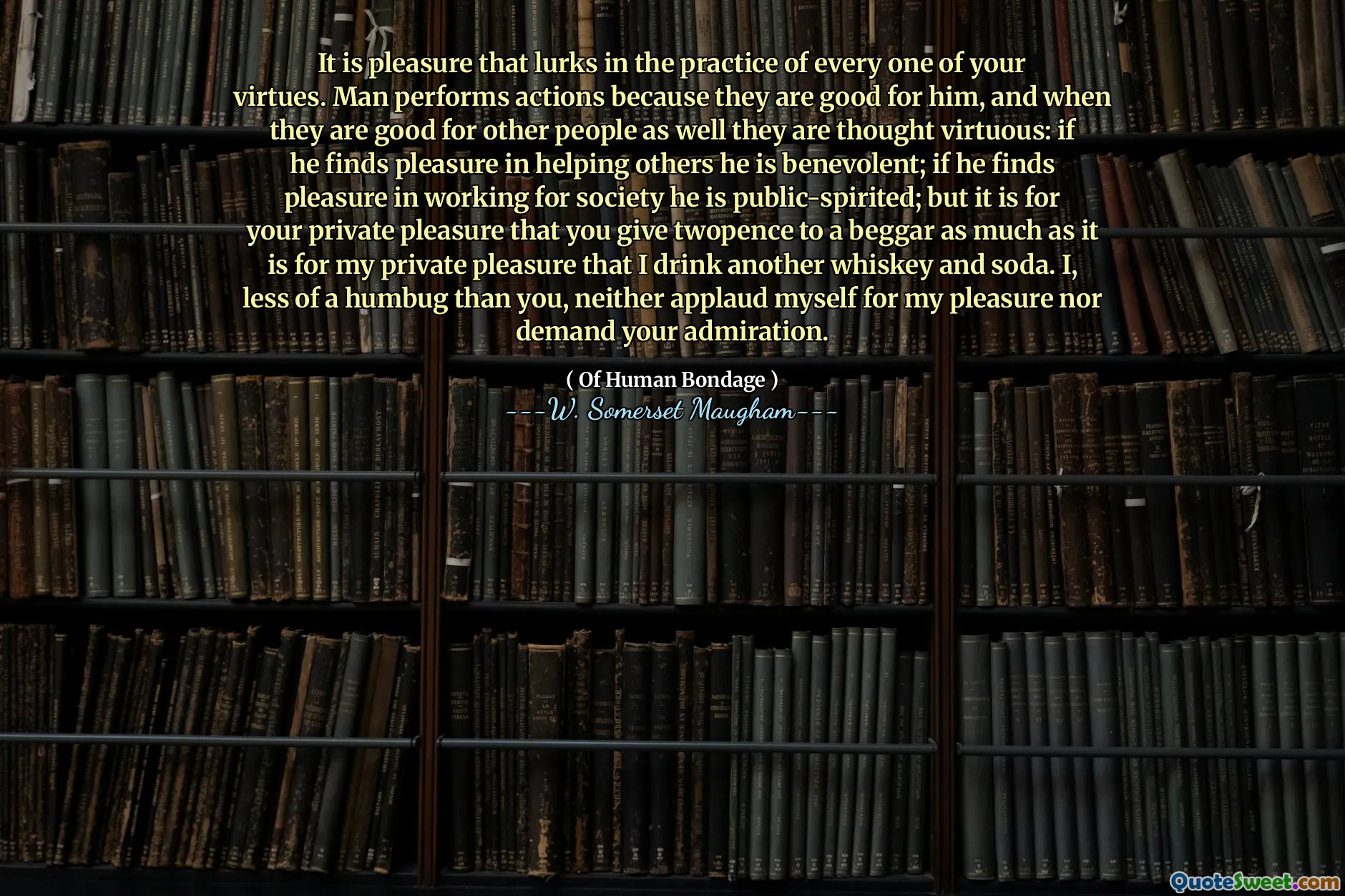
It is pleasure that lurks in the practice of every one of your virtues. Man performs actions because they are good for him, and when they are good for other people as well they are thought virtuous: if he finds pleasure in helping others he is benevolent; if he finds pleasure in working for society he is public-spirited; but it is for your private pleasure that you give twopence to a beggar as much as it is for my private pleasure that I drink another whiskey and soda. I, less of a humbug than you, neither applaud myself for my pleasure nor demand your admiration.
[Markdown format]
This quote profoundly examines the intrinsic motivations behind virtuous actions, challenging the traditional notion that virtue is solely rooted in moral righteousness or duty. Instead, it suggests that much of what we deem virtuous is intertwined with individual pleasure. The author argues that people often perform good deeds because those actions bring them personal satisfaction, whether it's helping others, contributing to society, or simply engaging in pleasurable activities. This perspective invites a more honest understanding of human motivation: no act is purely altruistic unless one considers the personal gratification involved.
This realization can serve as both a critique and an acceptance of human nature. Recognizing that self-interest often underpins acts of kindness or goodness does not diminish their value; instead, it illuminates the complex layers of human behavior. Helping others becomes not only a moral choice but also a pursuit that fulfills personal happiness. The comparison between giving a coin to a beggar and drinking whiskey underscores how personal pleasure motivates diverse actions, placing them on a spectrum rooted in individual desire.
Furthermore, the speaker's self-awareness—admitting to a clearer understanding than others about mere self-interest—adds a candid, perhaps slightly humorous tone. It challenges the reader to reflect on their motives and accept that genuine virtue might coexist with self-interest. Ultimately, the quote advocates for authenticity in human behavior and invites us to acknowledge the role of pleasure in our moral landscape, enriching our understanding of compassion, generosity, and social responsibility.
(Of Human Bondage) - W. Somerset Maugham





